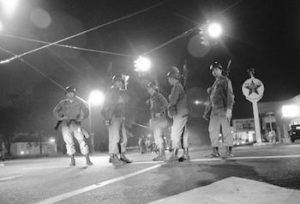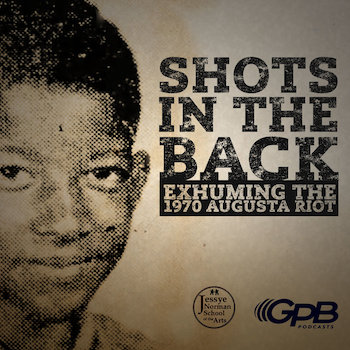
*On this date in 1970, the Augusta Riot occurred. This was a collective three-day rebellion of Black citizens and the largest urban uprising in the Deep South during the 20th-century American Civil Rights era.
Fueled by long-simmering grievances about racial injustice, it was sparked by white obstruction of Black citizens’ demand for answers about the beating death of Black teenager Charles Oatman. Simmering tensions came to a head on the evening of May 9 when news began circulating that young Oatman had been beaten to death in the county jail. The 16-year-old was a popular student at A.R. Johnson Junior High School. He was also mentally challenged. In a grim accident in late March, Oatman had fatally wounded his young niece in the kitchen of his family’s small house, but white authorities charged him with killing her and incarcerated him.

Over several weeks in jail, he was brutally tortured and beaten, ultimately dying of his injuries. His badly mutilated body, with cigarette burns, marks from a fork, and a deep gash in the back of his head, was brought from the jail to University Hospital and then to Mays Mortuary on May 9. At the Riot’s height, two to three thousand people participated, ransacking and setting fire to white and Chinese-American-owned businesses and damaging $1 million of property over a 130-block area. White police officers violently suppressed the Riot, with the endorsement of the governor, shoot-to-kill orders from their captain, and reinforcements by the National Guard and State Patrol.
The Riot fundamentally shook the status quo, galvanizing a new wave of activism that opened economic and political doors for Augusta’s Black citizens. Police brutality and severe poverty were deeply woven into the fabric of white supremacy in Augusta, and they showed no signs of weakening as a new decade began. Augusta’s Black organizations had different visions for bringing change: NAACP and SCLC chapters sought to expand on gains of the Civil Rights Movement, the Black Panther Party chapter and a cadre of Paine College students embraced the militancy and self-assertion of Black Power, and the Committee of Ten embodied a middle way, with a militant style but a focus on confronting white officials.
The criminality projected onto African Americans in 1970 continues, undergirding the racialized system of mass incarceration that legal scholar Michelle Alexander called “the new Jim Crow.” The White supremacist narrative of the Riot became firmly established as the community’s dominant memory of what happened, erasing the memory of Black grievances, of Black organizing and political intent, and of Black gains in the wake of the rebellion, which lasted for three days. A local group, the 1970 Augusta Riot Observance Committee, has been working to recover and honor the real story of this episode.